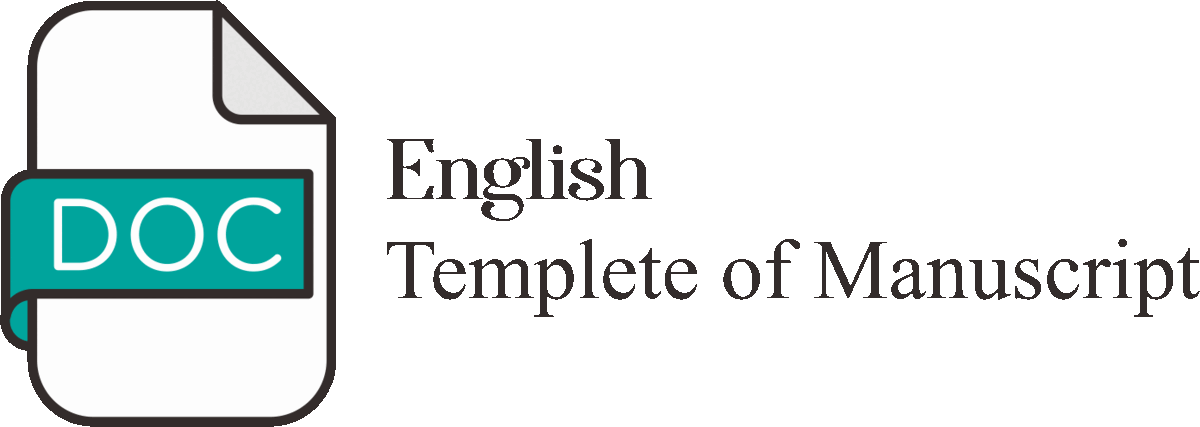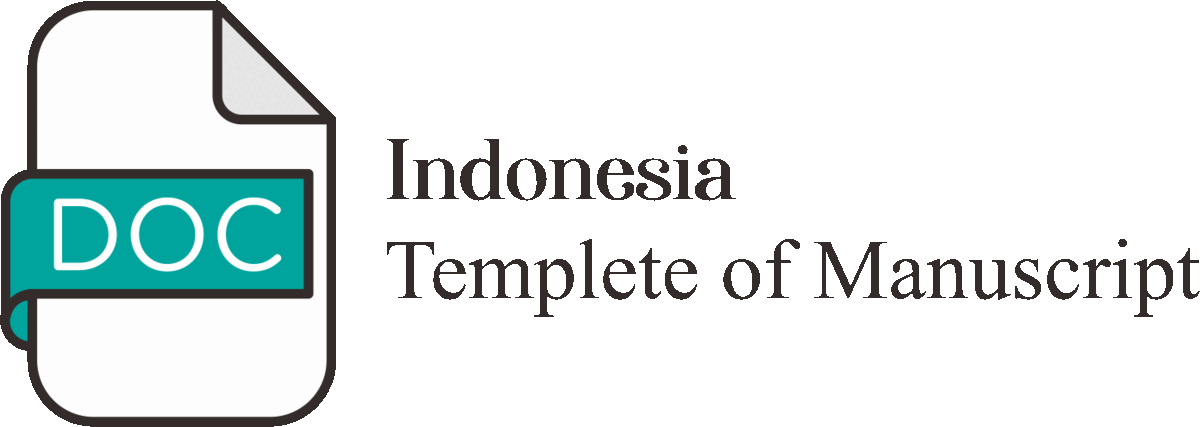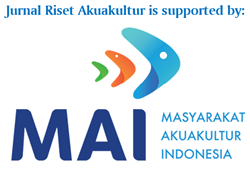- Focus and Scope
- Section Policies
- Peer Review Process
- Publication Frequency
- Open Access Policy
- Archiving
- Publication Ethics
Focus and Scope
Jurnal Riset Akuakultur is dedicated to studying the development and advancing knowledge of all aquaculture aspects. The journal also strives to provide a venue for researchers, academicians, practitioners, and the public to publish and communicate the latest knowledge and innovation through high-quality and peer-reviewed original research articles and scientific reviews in aquaculture disciplines.
Jurnal Riset Akuakultur publishes topics of various aquaculture disciplines, including:
- Genetics and reproduction related to aquaculture
- Aquaculture biotechnology
- Fish nutrition and feed
- Fish health and diseases
- Aquaculture engineering
- Aquaculture-environment interaction/impact assessment
- Aquaculture socio-economics and governance
Section Policies
Articles
Editorial
Peer Review Process
Publication Frequency
First published in 2006, with the publication frequency of four times a year, ie in March, June, September and December.
Open Access Policy
This journal provides immediate open access to its content on the principle that making research freely available to the public supports a greater global exchange of knowledge.

Archiving
Publication Ethics
Jurnal Riset Akuakultur (p-ISSN: 1907-6754; e-ISSN: 2502-6534) is an international peer-reviewed journal published by the Marine and Fisheries Polytechnic of Jembrana. This section clarifies the ethical behavior of all parties involved in the act of publishing an article in this journal, including the author, editor/co-editor-in-chief, the Editorial Board members, reviewers and the publisher. This statement is based on COPE's Best Practice Guidelines for Journal Editors.
Ethical Guideline for Journal Publication
The Marine and Fisheries Polytechnic of Jembrana, serving as the publisher of Jurnal Riset Akuakultur, takes exceptionally seriously its duties of guardianship over all stages of publication within the journal. As the publisher of the journal, we try to maintain the highest ethical standards and other responsibilities that come with the roles. We are committed to ensuring that advertising, reprint or other commercial revenue has no impact or influence on editorial decisions. In addition, the Marine and Fisheries Polytechnic of Jembrana and the editors will assist in communications with other journals and publishers to resolve publication issues or other necessary matters.
Publication decisions
The Editor-in-Chief of the Jurnal Riset Akuakultur has the sole authority to decide whether a manuscript submitted to the journal should be accepted or rejected by considering the editorial board members' and reviewers' recommendations. The Editor-in-Chief may delegate the decision-making to the Co-Editor-in-Chief on a case-by-case basis. The decision is taken based on the validation of the research work and the novelty contained within, which benefits the scientific community and the public. The editors and the editorial board members have to abide by the policies of the journal and be constrained by such legal requirements in the cases of libel, copyright infringement and plagiarism.
Fair play
An editor or editorial board member, at any time, evaluates the assigned manuscripts for their intellectual content without regard to race, gender, sexual orientation, religious belief, ethnic origin, citizenship, or political philosophy of the authors.
Confidentiality
The editors, editorial board members, and editorial staff must not disclose any information about a submitted manuscript to anyone other than the corresponding author, reviewers, potential reviewers, other editorial advisers, and the publisher, as appropriate.
Disclosure and conflicts of interest
Unpublished materials disclosed in a submitted manuscript must not be used in an editor's or editorial board members' own research without the express written consent of the authors.
Archiving and Preservation
This journal utilizes the LOCKSS system to create a distributed archiving system among participating libraries and permits those libraries to create permanent archives of the journal for purposes of preservation and restoration. All content in the Global LOCKSS Network is preserved with explicit publisher permission, secured via a written contract, or through online permission statements. We work closely with LOCKSS network implementers to facilitate the development of governance and legal terms that are appropriate to the implicated content, jurisdictions, rights, and access affordances.
Duties of Reviewers
Recommendation to Editorial Decisions
Peer reviewers assist the Editor-in-Chief in making editorial decisions and, through the editorial communications with the author, may also assist the authors in improving the manuscript.
Promptness
Any selected reviewer who feels unqualified to review the research reported in a manuscript or knows its prompt review will be impossible should notify the editor and excuse himself from the review process.
Confidentiality
Any manuscripts received for review must be treated as confidential documents. They must not be shown to or discussed with others except as authorized by the editors.
Standards of Objectivity
Reviews should be conducted objectively. Personal criticism of the author is inappropriate. Referees should express their views clearly with supporting arguments.
Acknowledgment of Sources
Reviewers should identify relevant published work that the authors have not cited. Any statement that an observation, derivation, or argument had been previously reported should be accompanied by the relevant citation. A reviewer should also call to the editor's attention any substantial similarity or overlap between the manuscript under consideration and any other published paper of which they have personal knowledge.
Disclosure and Conflict of Interest
Privileged information or ideas obtained through peer review must be kept confidential and not used for personal advantage. Reviewers should not consider reviewing manuscripts in which they have conflicts of interest resulting from competitive, collaborative, or other relationships or connections with any of the authors, companies, or institutions connected to the manuscripts.
Duties of Authors
Reporting standards
Authors of reports of original research should present an accurate account of the work performed as well as an objective discussion of its significance. Underlying data should be represented accurately in the paper. A paper should contain sufficient detail and references to permit others to replicate the work. Fraudulent or knowingly inaccurate statements constitute unethical behavior and are unacceptable.
Data Access and Retention
Authors are asked to provide the raw data in connection with a paper for editorial review and should be prepared to provide public access to such data (consistent with the ALPSP-STM Statement on Data and Databases), if practicable, and should, in any event, be prepared to retain such data for a reasonable time after publication.
Originality and Plagiarism
The authors should ensure that they have written entirely original works, and if the authors have used the work and/or words of others, that this has been appropriately cited or quoted.
Multiple, Redundant or Concurrent Publication
An author should not, in general, publish manuscripts describing essentially the same research in more than one journal or primary publication. Submitting the same manuscript to multiple journals concurrently constitutes unethical publishing behavior and is unacceptable.
Acknowledgment of Sources
Proper acknowledgment of the work of others must always be given. Authors should cite publications that have been influential in determining the nature of the reported work.
Authorship of the Paper
Authorship should be limited to those who have made a significant contribution to the conception, design, execution, or interpretation of the reported study. All those who have made significant contributions should be listed as co-authors. Where there are others who have participated in certain substantive aspects of the research project, they should be acknowledged or listed as contributors. The corresponding author should ensure that all appropriate co-authors and no inappropriate co-authors are included in the paper and that all co-authors have seen and approved the final version of the paper and have agreed to its submission for publication.
Hazards and Human or Animal Subjects
If the work involves chemicals, procedures or equipment that have any unusual hazards inherent in their use, the author must clearly identify these in the manuscript. Ethical approval regarding the involvement of human or animal as the research subject must be sought through a responsible institution and has to be clearly stated within the manuscript.
Disclosure and Conflicts of Interest
All authors should disclose in their manuscript any financial or other substantive conflicts of interest that might be construed to influence the results or interpretation of their manuscript. All sources of financial support for the project should be disclosed.
Fundamental errors in published works
When an author discovers a significant error or inaccuracy in his/her own published work, the author must promptly notify the journal editor or publisher and cooperate with the editor to retract or correct the paper.
1. Allegations of misconduct
Journals should have a clearly described process for handling allegations, however, they are brought to the journal's or publisher's attention. Journals must take seriously allegations of misconduct pre-publication and post-publication. Policies should include how to handle allegations from whistleblowers.
2. Authorship and contributorship
Clear policies (that allow for transparency around who contributed to the work and in what capacity) should be in place for requirements for authorship and contributorship as well as processes for managing potential disputes.
3. Complaints and appeals
Any complaints against the journal, editors, editorial staff, editorial board members, reviewers or publisher strictly in relation to the publication process must be channeled to the primary email of the journal at jra.puslitbangkan@gmail.com. The Editor/Co-Editor-in-Chief will respond to or follow up on the request/inquiries within a maximum of 10 working days.
4. Conflicts of interest / Competing interests
First/corresponding authors are required to provide a statement about whether they or the co-authors have any conflicts of interest to declare in the published articles. If the first/corresponding author is unable to confirm this information on behalf of all co-authors, the authors in question will then be required to submit a completed Conflict of Interest form to the Editorial Office.
5. Data and reproducibility
Any data that are not listed, described or written in the manuscript but are referenced in the manuscript shall be deposited in a known and traced data repository system. In such case that the data cannot be deposited in such a database, the authors must provide a statement that the data can be shared by a formal request. The authors must ensure that any methods described in their manuscript must be reproducible.
6. Ethical oversight
Ethical oversight should include, but is not limited to, policies on consent to publication, publication on vulnerable populations, ethical conduct of research using animals, ethical conduct of research using human subjects, handling confidential data and business/marketing practices.
7. Intellectual property
All policies on intellectual property, including copyright and publishing licenses, should be clearly described. In addition, any costs associated with publishing should be obvious to authors and readers. Policies should be clear on what counts as pre-publication that will preclude consideration. What constitutes plagiarism and redundant/overlapping publication should be specified.
8. Journal management
A well-described and implemented infrastructure is essential, including the business model, policies, processes and software for the efficient running of an editorially independent journal and the efficient management and training of editorial boards and editorial and publishing staff.
9. Peer review processes
All peer review processes must be transparently described and well managed. Journals should provide training for editors and reviewers and have policies on diverse aspects of peer review, especially with respect to the adoption of appropriate models of review and processes for handling conflicts of interest, appeals and disputes that may arise in peer review.
10. Post-publication discussions and corrections


















